Netanyahu Vows 'Strong Action' Against Hezbollah
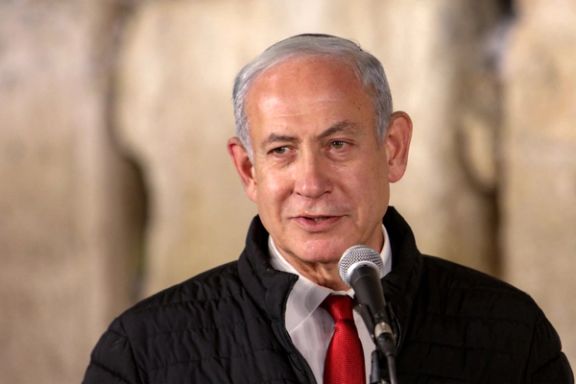
Israeli Prime Minister Benjamin Netanyahu toured the country's northern border with Lebanon on Wednesday and said Israel was prepared for strong action in the north against Iran-backed Hezbollah.

Israeli Prime Minister Benjamin Netanyahu toured the country's northern border with Lebanon on Wednesday and said Israel was prepared for strong action in the north against Iran-backed Hezbollah.
Israeli towns near the border, many of which have been evacuated, have been a frequent target of rocket and drone launches from Lebanese militant group Hezbollah. The rockets set off massive wild fires this week, burning swathes of land across northern Israel.
"Whoever thinks that they can harm us and we will sit idly by is making a big mistake. We are prepared for a very strong action in the north. In one way or another we will restore security to the north," Netanyahu said.
In recent days, there have been more reports citing Israeli officials of a possible military push against the heavily armed Hezbollah that controls Lebanon's border region with Israel.
Iran-backed Hezbollah and Israel have been exchanging fire for the past eight months in parallel with the Gaza war, raising concerns that an even wider conflict could break out between the heavily armed adversaries.
The hostilities between Israel and Hezbollah have been their worst since they waged war in 2006, and tens of thousands of people on both sides of the border have been forced to flee their homes.
Reporting by Reuters
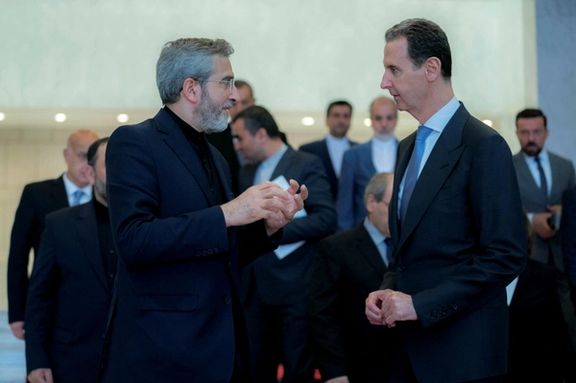
Iran's acting foreign minister Ali Bagheri-Kani met Syrian President Bashar al-Assad and Foreign Minister Faisal Mekdad in Damascus on Tuesday, where he also held a meeting with Palestinian representatives.
Reports in Iranian media emphasized that discussions were about the war in Gaza and “putting an end to Israeli crimes.”
Bagheri-Kani travelled to Syria after meetings in Beirut on Monday, his first trip abroad since becoming Iran's acting top diplomat following the deaths of his predecessor and Iranian President Ebrahim Raisi in a helicopter crash last month.
He also met Palestinian factions at the Iranian embassy in Damascus, as his predecessor had. There are no details about what was discussed in the meeting. Iran backs Palestinian armed groups including Hamas, which launched the October 7 attack on Israeli territory that triggered the Gaza conflict. The Iranian government immediately launched celebration on October 7 and has vowed to continue providing support to Hamas.
At a joint press conference alongside Mekdad, Bagheri-Kani said the pair had discussed the need for an immediate ceasefire in Gaza and the delivery of humanitarian aid without conditions. Iranian media said that the chief diplomat also emphasized the importance of strengthening the “strategic relations” between the two countries.
Syria’s Mekdad rejected reports about problems in the bilateral relations, calling such statements “Claims, delusions, or the wishes of some people.”
Bagheri-Kani was then received by Assad on Tuesday afternoon to discuss bilateral ties between the two close allies and "developments in the occupied Palestinian territories", according to Assad's office.
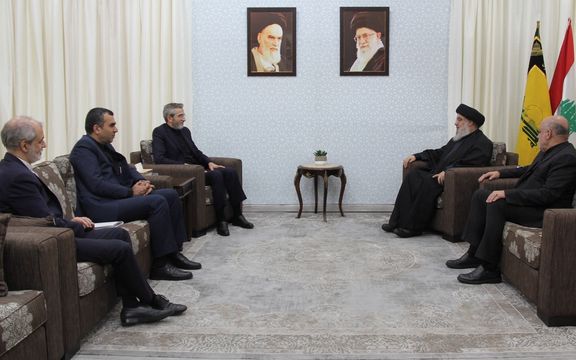
One day before Bagher-Kani’s visit to Damascus, Iranian government media reported that a Revolutionary Guard "advisor", Saeed (Saeid) Abyar was killed in an Israeli air strike near Aleppo, the second largest city in Syria early Monday.
At least since 2017, Israel has regularly bombed Iran-related targets in Syria to prevent weapons transfers to Hezbollah in Lebanon and the expansion of Iranian bases in Syria.
A devastating air strike on April 1 flattened a building in the Iranian diplomatic compound in Damascus, where two senior Revolutionary Guard generals and five other officers died. Reportedly, these individuals were involved in operations aimed at intensifying attacks on Israel. This led to a massive Iranian missile and drone retaliatory attack against Israel on April 13, which inflicted minimal damage. Most projectiles were shot down.
In his day-long visit to Beirut, Bagheri-Kani met his Lebanese counterpart, other Lebanese officials and Sayyed Hassan Nasrallah, the head of powerful armed group Hezbollah which is the spearhead of Iran's network in the region.
Assad met Iran's Supreme Leader Ayatollah Ali Khamenei in Tehran on May 30 to offer condolences for the death of Raisi.
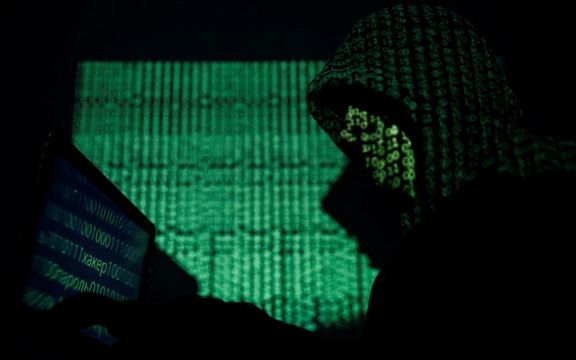
A network of Iranian operatives has targeted Israeli journalists and protesters with death threats amid its ongoing psychological warfare operation.
Death threats have been sent to the personal phones of Israeli reporters from Haaretz and Channel 13, accusing them of ‘collaborating with the enemy’.
Israel’s most left-wing newspaper, Haaretz, claims one of its reporters received a death threat on a call last week from a number registered abroad from a person speaking poor English.
In a bid to sow internal chaos amid the war in Gaza which has seen nationwide calls for the resignation of Prime Minister Netanyahu and a ceasefire to secure the release of hostages held by Iran-backed Hamas, digital surveillance firm Active Info, which has been monitoring the group for the past year, claims the sophisticated network also includes an account impersonating the controversial Minister of National Security, Itamar Ben-Gvir.
The influence network includes a Twitter account called Heroes of Israel, allegedly aligned with the campaign for a ceasefire and freeing of the hostages in Gaza. Hamas invaded Israel on October 7 killing 1,200 mostly civilians in a single day, taking 250 more hostage. Over 120 still remain inside the strip, several of whom are known to have been killed in captivity. As the war in Gaza rages on, the families of the hostages are desperate for a ceasefire to secure their release while the government has vowed there is no ceasefire until the elimination of the terror group.
The newspaper was contacted by the owner of the account who offered exclusive videos of the anti-government protests. When the reporter asked the source to identify themselves, they claimed to be a woman called Caroline Smart from the Netherlands who was unable to be in Israel herself due to the war.
Offering the reporter money to publish the pictures being offered "in order to help the campaign to free the hostages”, she offered to help install digital wallet software on his mobile device to make the payment in digital currency, a tool seen in previous cyber espionage campaigns by Iran.
When reporter Bar Peleg checked the Dutch number on WhatsApp he discovered the profile picture was stolen from the internet. When confronted, ’Caroline’ accused him of being “an Iranian spy”. The conversation was then manipulated, screenshot and sent to a pro-Israel page called Stand With Israel to insinuate the reporter was working with malign foreign influences or was aligned with the far right.
Just last week, Facebook's parent company reported that Iran was behind an influence operation exposed by Haaretz last year in coordination with researchers at Fake Reporter. It exposed a network with a plethora of fake accounts from gay representation to religious and political allegiances as the group delved into the multifaceted fabric of Israeli society.
Active Info claims the network has been operating on X for several months. Executed seamlessly, the fake Ben-Gvir account often echoes the real minister.
Last week other journalists from Channel 13 television news received threatening phone calls from foreigner numbers. "I know you up close, soon I will kill you and your family," said one with a Persian accent in a nighttime call to a reporter. Another reporter got one in the same Persian accent from a US phone number, saying "Leave Israel quickly, get it? You get it? If you don't, we'll kill you and your family.”
Defense sector retirees, public figures and even families of Israelis held by Hamas in Gaza and Knesset lawmakers have also recently received threatening letters and packages.
Iran began using the concept of foreign influence networks around two years ago to make connections with Israelis in an attempt to dupe them into acting as unwitting spies. They infiltrated the WhatsApp groups of political activists and convinced some to photograph the homes of top security officials, to print protest signs created by the Iranians on the hostages and even join fictitious demonstrations near the homes of hostage families.
In many cases, honey traps have also been used over the last two years. Iran International knows of several cases in which Israeli men were contacted on social media by figures posing as beautiful women asking them to meet in the likes of Turkey and Dubai. Though Israelis are trained in the army to recognize such fishing attempts, the intervention of intelligence agencies has been required in some cases.
"We have been aware of the practice of foreign influence networks asking Israelis for photos or videos since 2020," Active Info told Haaretz. "The goal is to give the foreign accounts local credibility, as if they were really involved in the protest movement. It's really a school of influence, creating fake conflicts between the right and the left, who argue with each other and even accuse each other of not being real."
The practice is not confined to Iran’s archenemy Israel. Dissident journalists abroad have also been the target of Iran’s spy-ops with death threats levied against Iran International reporters.
Just days ago, UN experts warned of transnational violence, threats, and intimidation by Iranian authorities and their proxies targeting Iran International and its journalists.
“We are deeply alarmed that death threats and intimidation against Iran International staff escalated into the violent stabbing of journalist Pouria Zeraati outside his home in London on 29 March 2024,” the experts said of the attack which sent shockwaves through the Iranian community.
Last year, the threats against Iran International staff became so severe that British security services MI5 said they could no longer protect the team, leading to a temporary relocation to Washington while the London offices were secured. MI5 and the police revealed they had foiled over 15 pilots on UK soil since the start of 2022 targeting “enemies of the regime”.

A US federal court has found Iran’s government guilty of torturing Iranian dissident journalist Issa Saharkhiz, ordering it to pay $5 million to Saharkhiz’s son, Mehdi, who lives in the US and has filed the lawsuit.
Significant as the ruling is symbolically, it is not expected to benefit the plaintiff financially, since Iran has no assets in the United States and funds may not be recovered from blocked Iranian assets. This has been confirmed by similar rulings in recent years, where individual lawsuits have been filed against the Islamic Republic under the Foreign Sovereign Immunity Act.
Previous cases include that of the late Siamak Pourzand (d. 2011), whose wife and two daughters were awarded $34 million in damages by a US federal court in September 2022, after the judge heard reports of Pourzand’s abduction, detention and torture by the authorities in Iran.
More recently, in September 2023, the two daughters of former diplomat and deputy prime minister, Abbas Amirentezam (d. 2018), were awarded $6.5 million each in damages by a US District Court, after the judge ruled that Iran’s government and the Revolutionary Guard (IRGC) were “liable for torture” of Amirentezam –who served almost 40 years of incarceration and house arrest for “for fabricated charges of espionage”. Amirentezam was the longest-serving political prisoner after the 1979 Revolution in Iran.
All these cases –including that of Issa Saharkhiz– have been defended by Ali Hersichi of Herischi Human Rights Law Center. In his statement following the latest ruling, Herischi said the verdict on Saharkhiz was issued against the Islamic Republic, its Supreme Leader, and the IRGC.
The case took more than three years, according to Herischi, who wrote that the judge affirmed that “Saharkhiz was indeed tortured” in prison. “The court attributed responsibility for this torture to the Islamic Republic of Iran, citing systematic torture practices in its prisons,” Herischi said.
Issa Saharkhiz is a veteran journalist and former official who for five years in the 1990s ran the New York office of Iran’s official news agency (IRNA). He returned to Iran in the late 1990s and took charge of the press department at the Islamic Republic’s Culture Ministry. Saharkhiz was arrested and jailed after Iran’s disputed elections in 2009. He faced further imprisonments in 2015 and 2017, before being released in 2018.
“Throughout his imprisonment, Saharkhiz was subjected to various forms of torture,” according to the statement released by Herischi Human Law Center, “including beatings, denial of medical care, solitary confinement under inhumane conditions, and forced confessions without legal representation.”
The statement calls the ruling an “irrefutable evidence of illegal behavior and torture in Iranian prisons” which may help international courts “to prove the occurrence of torture” in prisons of the Islamic Republic of Iran.
The Iranian government dismisses all such cases and chooses not to have representation in courts.
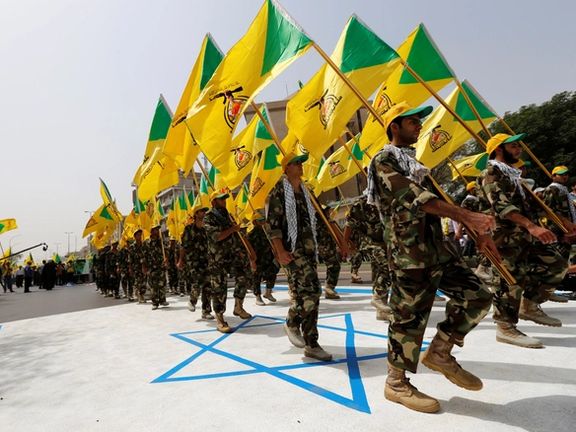
Iran-backed Shi'ite armed groups in Iraq have ramped up rocket and missile attacks on Israel in recent weeks, raising concerns in Washington and among some Iranian allies of potential Israeli retaliation and regional escalation should they draw blood.
Though the attacks, often from hundreds of miles (kms) away, are not seen by western officials and Israeli experts as posing the same level of threat to Israel as point-blank strikes by Hamas and Hezbollah, they have increased in number and sophistication.
At least two have hit their targets and many have had to be shot down by U.S. and Israeli defenses, according to U.S officials and public statements by the Israeli military.
New weaponry such as cruise missiles have been regularly used since May and are harder for air defenses to destroy.
"Overall, the intensity and the types of weapons systems used have steeply escalated," said Mike Knights, a fellow at the U.S.-based Washington institute for Near East Policy, where he tracks the attacks. "It complicates the Israeli task and is an increased financial cost," he said.
Reuters spoke to more than a dozen people, including sources in Iraqi armed groups and other factions in Iran's network of regional allies known as the Axis of Resistance, alongside U.S. and other regional officials, most of whom spoke on condition of anonymity to give candid assessments of a sensitive issue.

They said the attacks by Iraqi factions, including Kataib Hezbollah and Nujaba, were a cause for rising concern for Washington and also viewed with unease among some in Iran and its powerful Axis ally Hezbollah in Lebanon, which has carefully calibrated its own engagements with Israel to prevent all-out regional conflict.
"They could get the Axis involved in something it does not currently want," a senior figure in the Axis of Resistance said, describing the view among pro-Iran groups on condition he not be identified.
Iran and Hezbollah, the most organized members of the network, have in the past struggled to rein in Iraqi factions.
Hussein al-Mousawi, a spokesperson for Nujaba, one of the main armed Shi'ite factions in Iraq participating in strikes on Israel, told Reuters the strikes were a natural evolution of the role of Iraqi groups and aimed to increase the cost of the war in Gaza. They intend to strike from anywhere, for as long as is necessary.
"The operations carried out by the Resistance are not bound by temporal or spatial boundaries," Mousawi said. "We, as a resistance, do not fear the consequences as long as we are in the right and we represent the popular and official will."
The Iraqi government, which carefully balances its alliances with both Washington and Tehran, does not officially approve of the strikes but has been unable or unwilling to stop them.
Critics say this shows the limits of Prime Minister Mohammed Shia al-Sudani's power in a coalition government that includes Iran-backed armed groups, and may undermine efforts to rebrand Iraq as stable and open for business.
Iraq does not recognize Israel and a 2022 law punishes those trying to normalize ties with death or life in prison. Israel views Iraq as an Iranian vassal state and main corridor for weapons from Iran to other armed groups including Hezbollah.
The Israeli and Iraqi governments did not respond to requests for comment. The U.S. State Department declined to comment.
ESCALATING THREAT
The Iraqi groups trace their roots to the fight against U.S. troops in Iraq after the toppling of dictator Saddam Hussein in 2003. They have since grown their regional reach, mirroring the evolution of other Iranian allies such as the Houthis in Yemen who have launched strikes on shipping in the Red Sea.
Iraqi groups joined the Syrian civil war in support of Iran's ally President Bashar al-Assad, gaining a foothold in territory near the border with Israel. A shadowy Iraqi group claimed drone attacks on Saudi Arabia and the United Arab Emirates in 2021 and 2022.
The attacks by Iraqi groups on Israel are launched from areas south of Baghdad and in the Iraqi-Syrian border area where Iran-backed factions hold sway, according to Knights.
To get from Iraq to Israel, projectiles must fly over Syria, Jordan or Saudi Arabia.
While Iran has been keen to have Iraqi factions contribute to the regional battle against Israel, their propensity to miscalculate was a constant cause for concern, the senior figure in the Axis said.
He noted that the Iraqi groups had already unwittingly caused a major regional escalation in January, when they killed three U.S. troops in a drone attack on a U.S. outpost in Jordan.
That attack - which crossed multiple U.S. and regional red lines by hitting a neighboring Arab state and killing Americans - led to a deadly campaign of U.S. airstrikes in Iraq and Syria.
So serious was the risk of escalation then, that the commander of Iran's elite Quds Force travelled to Baghdad to tell the factions to dial down their attacks, Iranian and Iraqi sources told Reuters at the time.
Attacks on U.S. forces stopped. There was a brief lull. Then, they turned their attention to Israel.
A senior Iranian official who asked not to be identified to discuss sensitive matters said this shift in focus was part of a plan to keep the pressure on Israel over the Gaza war.
A U.S. defense official, speaking on condition of anonymity in line with regulations, said the attacks on Israel jeopardized the stability of Iraq and the region by increasing the risk of military action, including potentially by the U.S. and Israel.
"The sophistication and frequency of these attacks highlight the escalating threat posed by these groups" the official said.
"The U.S. military will not hesitate to act to protect our forces and support the defense of our allies."
'FREE HAND'
Iraq has posed a threat to Israel before - notoriously during the 1991 Gulf War when Saddam fired barrages of Scud missiles at Tel Aviv and Haifa.
At the time, Washington prevailed upon Israel not to retaliate to avoid an escalation that could undermine a U.S.-led coalition, including Arab armies, which had been pulled together to eject Iraqi forces from Kuwait.
After Hamas militants launched their attack on Israel on Oct. 7 last year precipitating the war in Gaza, Iraqi Shi'ite armed factions, like other pro-Iranian groups, pledged to carry out attacks in solidarity with the Palestinians.
They initially targeted mainly U.S. forces based in Iraq and Syria. But on Nov. 2 they claimed their first ever attack on Israel.
A handful of other claimed attacks on Israel followed in the next few months, including four in February, even after the groups had publicly halted attacks on U.S. forces, according to public claims of responsibility by the Iran-backed groups.
The number of claimed attacks shot up to 17 in March, and doubled again in May, averaging more than one a day, though U.S. officials and the source in the pro-Iranian Axis said they are not certain all the claimed attacks were genuine.
Reuters was not able to determine exactly how many attacks have been launched nor how many hit their intended target.
The attacks are frequently accompanied by video released on social media purporting to show the projectiles being fired from remote Iraqi desert sites as militants shout the names of holy figures revered mainly by Shi'ites. Reuters was not able to verify the date or location of the videos.
While Israel rarely comments on its operations in neighboring states, it is thought to have struck pro-Iran groups in Iraq before, in 2019, when Prime Minister Benjamin Netanyahu said he had given the military "a free hand" to act "to thwart Iran's plans".
Asked to provide information on launches by Iran-backed factions in Iraq, the Israeli military declined to comment.
Israeli authorities have publicly confirmed at least two impacts on the coastal city of Eilat that Israeli media said came from Iraq, on a school in November and a naval base in April.
Additionally, the military has announced many interceptions of projectiles coming "from the east", widely seen as a reference to Iraq. No injuries or deaths have been reported as a result of the attacks.
Amos Yadlin, a retired Israeli air force general who formerly headed military intelligence, said he would rate the level of threat the attacks pose to Israel as "one step down" from Hezbollah or the Houthis.
The U.S. defense official said projectiles fired from Iraq had been intercepted by U.S. forces operating "from various locations in the Middle East, as part of our commitment to Israel's defense and regional security."
"The frequency of these actions has increased in response to the rising number of threats," the official said.
SOURCE:REUTERS
By Timour Azhari and Laila Bassam

Palestinian president Mahmoud Abbas slammed Iran's supreme leader for hailing the October 7 attacks a success while the war in Gaza has only led to the sacrifice of "Palestinian blood".
He dismissed Ali Khamenei's recent statements claiming the attacks were a "huge blow" to Iran's archenemy, Israel, claiming the war will not "lead to the establishment of an independent Palestinian state" and will "not serve the Palestinian national goals of liberating Jerusalem".
Khamenei's comments "clearly announce that their [Iran's] goal is to sacrifice the blood of Palestinians and thousands of children, women and the elderly, and to destroy Palestinian land", said Abbas, head of the Palestinian Authority which controls the West Bank, Iran long funding, training and arming Hamas.
The remarks by Khamenei were made at the 35th anniversary at the 35th anniversary ceremony of Ayatollah Ruhollah Khomeini's death, claiming that "the Zionist regime [Israel] is melting before the eyes of the world."
However, following the October 7 attacks when 1,200 people were murdered by Iran-backed Hamas in Israel and 250 more taken hostage, over 36,000 Palestinians have died in the longest and most bloody Gaza war since Hamas took control of the strip in 2007, according to Hamas figures.
Around half the population are now displaced and it will take years to rebuild Gaza which is now suffering food shortages as looting of humanitarian aid from both gangs and Hamas in the strip are rife and several key border crossings remain closed.